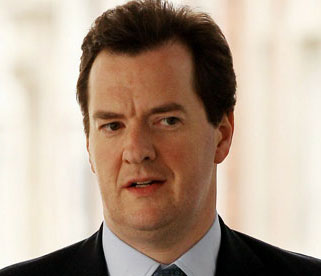Experienced Investor
‘Punishment Budget’ cancelled as Osborne seeks to reassure public

George Osborne today announced there will be no emergency Budget following the shock Brexit result and reassured the public that Britain is ready to confront the future.
In his statement, the chancellor said Britain is in a position of strength, with both the public and the government rebuilding the economy in the last six years, meaning that the country “has the strongest major advanced economy in the world.”
The employment rate is at a record high and the budget deficit has been brought down from 11% of national income, and was forecast to be below 3% this year.
As a result, Osborne said our economy is “about as strong as it could be to confront the challenge our country now faces” following the vote to leave the EU.
The chancellor said now the people have spoken, “we must all accept the result and deliver on the instructions to leave”.
He said: “I don’t resile from any of the concerns I expressed during the campaign, but I fully accept the result of the referendum and will do everything I can to make it work for Britain.
“It is inevitable, after Thursday’s vote, that Britain’s economy is going to have to adjust to the new situation we find ourselves in.”
The challenges Britain faces and how the government will meet them
Analysis by the Treasury and other independent organisations before the vote identified three particular challenges and Osborne spoke of how each would be met.
1) Volatility in the financial markets
Osborne said that while the markets may not have been expecting the referendum result, the Treasury, the Bank of England (BoE), and the Financial Conduct Authority (FCA) have spent the last few months putting in place “robust contingency plans for the immediate financial aftermath in the event of this result.”
‘Swap lines’ were arranged so the BoE is now able to lend in foreign currency if needed.
The BoE governor, Mark Carney released a statement on Friday making it clear that it’s ready to provide £250bn of funds to continue to support banks and the “smooth functioning of markets.”
Osborne added that in the last 72 hours, he’s been in contact with European finance ministers, central bank governors, the managing director of the IMF, the US Treasury Secretary and the Speaker of Congress, and the CEOs of some of our major financial institutions so that collectively they can keep a close eye on developments.
He said that it won’t be plain sailing in the days ahead, but the government is determined that unlike eight years ago, Britain’s financial system will help the country deal with any shocks and dampen them – not contribute to those shocks or make them worse.
2) Uncertainty over Britain working with European allies to create new relationships
So far, the prime minister David Cameron has delayed the decision to trigger the Article 50 procedure until there is a new prime minister in place for the autumn following his resignation on Friday.
Only the UK prime minister can trigger Article 50, and Osborne said that this should only be done when there is a “clear view about what new arrangement we are seeking with our European neighbours.”
Osborne reassured the public that in the meantime, there will be no change to people’s rights to travel and work, and to the way goods and services are traded, or to the way the economy and financial system is regulated.
However, he said that it’s already evident that as a result of Thursday’s decision, some firms are continuing to pause their decisions to invest, or to hire people.
“To all companies large and small I would say this: the British economy is fundamentally strong, we are highly competitive and we are open for business,” he said.
3) Economic relationship with Europe to provide the best possible terms of trade
The third challenge Osborne broached was ensuring Britain was able to agree a long-term economic relationship with the rest of Europe that provided for the best possible terms of trade in goods and services.
He said: “Together, my colleagues in the government, the Conservative Party and in Parliament will have to determine what those terms should be – and we’ll have to negotiate with our European friends to agree them.
“I intend to play an active part in that debate – for I want this great trading nation of ours to put in place the strongest possible economic links with our European neighbours, with our close friends in North America and the Commonwealth, and our important partners like China and India.
“I do not want Britain to turn its back on Europe or the rest of the world.
“Today I am completely focussed on the task in hand as Chancellor of the Exchequer to bring stability and reassurance.”